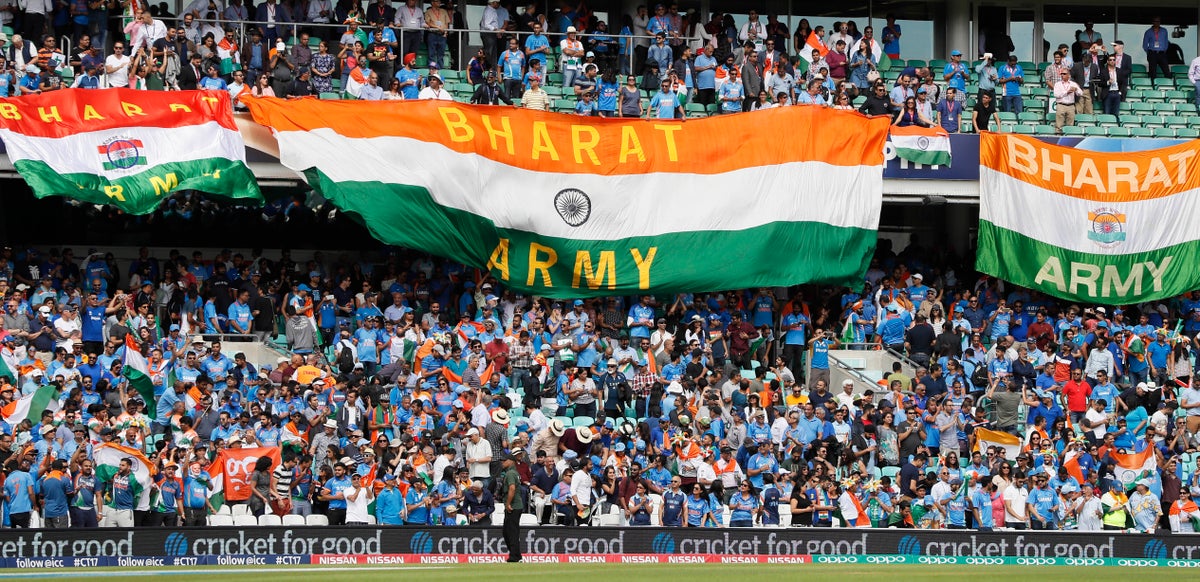
An official invite for India’s G20 summit has fuelled rumours that the government is considering changing the country’s name to the Hindi word “Bharat”.
Photos widely shared across social media showed the invite, meant for foreign dignitaries landing in New Delhi this week, with the words “President of Bharat” emblazoned on it instead of the usual “President of India”.
“The President of Bharat requests the pleasure of the company of (names) at dinner on Saturday at 2000 hrs,” the invite says.
“So the news is indeed true,” posted former minister and opposition Congress leader Jairam Ramesh on X. “Rashtrapati Bhawan [the Presidential Palace] has sent out an invite for a G20 dinner on September 9th in the name of ‘President of Bharat’ instead of the usual ‘President of India’.”
The term “Bharat” is colloquially used to describe India in the Hindi language and has its origins in the ancient Sanskrit language. The political debate over the official usage of “Bharat” has only grown since prime minister Narendra Modi’s Hindu nationalist government came to power in 2014 and there are recent unconfirmed reports that Mr Modi might finally push to officially change the country’s name in all instances.
Recent media reports about a “special session” of the Indian parliament, coupled with the photo of the invite, have also sparked rumours that Mr Modi’s Bharatiya Janata Party (BJP) is planning to use the session to announce its intention to officially rename the country.
A resolution to that effect could be taken up by the BJP in the upcoming “special session”, in which the usual question hour will not take place, which is slated for 18-22 September, officials said last week.
The “special session” marks a departure from the existing format of the three parliament sessions that are currently held.
Some senior BJP figures have welcomed the rumours, with the chief minister of the BJP-led Assam state, Himanta Biswa Sarma, changing his location on X to “Assam, BHARAT”.
Rumours of the name change come just weeks after India’s opposition leaders made an effort to rebrand themselves and call their bloc INDIA, or the Indian National Developmental Inclusive Alliance, ahead of crucial elections next year.
The use of the country’s name as an acronym for the opposition coalition – which includes almost all major regional leaders in a united front against the ruling party – was met with a strong backlash from the BJP, including Mr Modi.
In turn, opposition figures who are part of the INDIA bloc criticised the idea of changing the country’s name unilaterally, saying it does not belong to one political party, but to billions of citizens.
“While there is no constitutional objection to calling India ‘Bharat’, which is one of the country’s two official names, I hope the government will not be so foolish as to completely dispense with ‘India’, which has incalculable brand value built up over centuries,” said Congress party leader Shashi Tharoor.
“If an alliance of some parties become ‘INDIA’, would they [BJP] change the name of the country? The country belongs to 140 crore people, not to a party. Let’s assume if the India alliance renames itself as Bharat, would they rename Bharat as BJP then? What’s this joke?” questioned Delhi’s chief minister Arvind Kejriwal, another leading opposition figure.
While “Bharat” and “India” are both official words to refer to the country, the preamble to the Indian Constitution starts with: “We, the people of India, having solemnly resolved to constitute India into a sovereign, socialist, secular, democratic republic.”
The term “India” has been used since independence from British rule in 1947, by government ministries, top schools, colleges, universities, hospitals, educational institutions and airports.







